
United Nations Security Council Resolution 1919, adopted unanimously on April 29, 2010, after recalling resolutions 1674 (2006), 1894 (2009) on the protection of civilians in armed conflict, 1612 (2005) and 1882 (2009) on children in armed conflict, 1502 (2003) on the protection of humanitarian and United Nations personnel, and 1325 (2000), 1820 (2008), 1888 (2009), and 1889 (2009) on women, peace, and security, the Council extended the mandate of the United Nations Mission in Sudan (UNMIS) until April 30, 2011 with the intention of renewing it further if necessary.
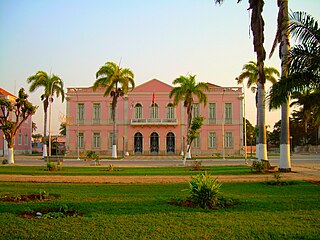
United Nations Security Council resolution 1106, adopted unanimously on 16 April 1997, after reaffirming Resolution 696 (1991) and all subsequent resolutions on Angola, the Council welcomed the establishment of the Government of Unity and National Reconciliation (GURN) and extended the mandate of the United Nations Angola Verification Mission III until 30 June 1997.

United Nations Security Council resolution 1116, adopted unanimously on 27 June 1997, after recalling all resolutions on the situation in Liberia, particularly Resolution 1100 (1997), the Council extended the mandate of the United Nations Observer Mission in Liberia (UNOMIL) until 30 September 1997 with the expectation that it will terminate on that date.

United Nations Security Council resolution 1125, adopted unanimously on 6 August 1997, after expressing concern at the situation facing the Central African Republic, the Council authorised the continuation of the Inter-African Mission to Monitor the Implementation of the Bangui Agreements (MISAB) mission in the country for a further three months.

United Nations Security Council resolution 1136, adopted unanimously on 6 November 1997, after recalling Resolution 1125 (1997) regarding the situation in the Central African Republic, the Council authorised the continuation of the Inter-African Mission to Monitor the Implementation of the Bangui Agreements (MISAB) mission in the country for a further three months.

United Nations Security Council resolution 1152, adopted unanimously on 5 February 1998, after reaffirming resolutions 1125 (1997) and 1136 (1997) regarding the situation in the Central African Republic, the Council authorised the continuation of the Inter-African Mission to Monitor the Implementation of the Bangui Agreements (MISAB) mission in the country until 16 March 1998.

United Nations Security Council Resolution 1155, adopted unanimously on 16 March 1998, after reaffirming resolutions 1125 (1997), 1136 (1997) and 1152 (1998) regarding the situation in the Central African Republic, the Council authorised the continuation of the Inter-African Mission to Monitor the Implementation of the Bangui Agreements (MISAB) mission in the country until 27 March 1998.
United Nations Security Council resolution 1159, adopted unanimously on 27 March 1998, after reaffirming resolutions 1125 (1997), 1136 (1997), 1152 (1998) and 1155 (1998), regarding the situation in the Central African Republic, the council established the United Nations Mission in the Central African Republic (MINURCA).
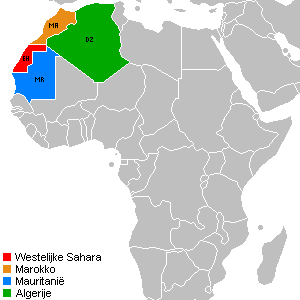
United Nations Security Council resolution 1163, adopted unanimously on 17 April 1998, after reaffirming all previous resolutions on the Western Sahara, the Council extended the mandate of the United Nations Mission for the Referendum in Western Sahara (MINURSO) until 20 July 1998 so that it could proceed with voter identification tasks.
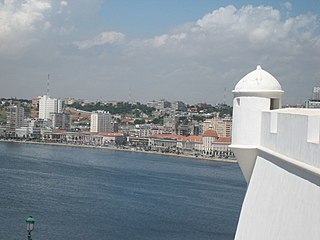
United Nations Security Council resolution 1164, adopted unanimously on 29 April 1998, after reaffirming Resolution 696 (1991) and all subsequent resolutions on Angola, the Council extended the mandate of the United Nations Observer Mission in Angola (MONUA).

United Nations Security Council resolution 1201, adopted unanimously on 15 October 1998, after reaffirming resolutions 1125 (1997), 1136 (1997), 1152 (1998), 1155 (1998), 1159 (1998) and 1182 (1998) regarding the situation in the Central African Republic, the Council extended the mandate of the United Nations Mission in the Central African Republic (MINURCA) until 28 February 1999.

United Nations Security Council Resolution 1923 was adopted unanimously on 25 May 2010, after recalling resolutions 1769 (2007), 1778 (2007), 1834 (2008), 1861 (2009), 1913 (2010) and 1922 (2010). The Council extended the mandate of the United Nations Mission in the Central African Republic and Chad (MINURCAT) for a final time until 31 December 2010, with a complete withdrawal by that date.
United Nations Security Council resolution 1230, adopted unanimously on 26 February 1999, after reaffirming resolutions 1125 (1997), 1136 (1997), 1152 (1998), 1155 (1998), 1159 (1998), 1182 (1998) and 1201 (1998) regarding the situation in the Central African Republic, the Council extended the mandate of the United Nations Mission in the Central African Republic (MINURCA) until 15 November 1999, expressing its intention to fully terminate it by that date.

United Nations Security Council resolution 1271 was adopted unanimously on 22 October 1999, after reaffirming all resolutions on the situation in the Central African Republic, including resolutions 1159 (1998), 1201 (1998) and 1230 (1999). The Council extended the mandate of the United Nations Mission in the Central African Republic (MINURCA) until 15 February 2000 with a view to its transition from a peacekeeping operation to a post-conflict peace-building presence.
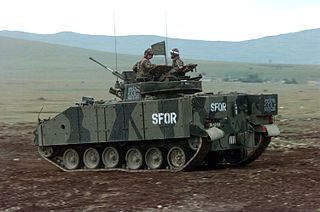
United Nations Security Council resolution 1357, adopted unanimously on 21 June 2001, after recalling resolutions 1031 (1995), 1035 (1995), 1088 (1996), 1103 (1997), 1107 (1997), 1144 (1997), 1168 (1998), 1174 (1998), 1184 (1998), 1247 (1999) and 1305 (2000), the council extended the mandate of the United Nations Mission in Bosnia and Herzegovina (UNMIBH) for a period until 21 June 2002 and authorised states participating in the NATO-led Stabilisation Force (SFOR) to continue to do so for a further twelve months.

United Nations Security Council resolution 1626, adopted unanimously on 19 September 2005, after recalling all previous resolutions on the situations in Liberia and Sierra Leone, particularly resolutions 1509 (2003), 1610 (2005) and 1620 (2005), the Council extended the mandate of the United Nations Mission in Liberia (UNMIL) until 31 March 2006 and authorised the deployment of 250 troops to Sierra Leone to protect the Special Court.

United Nations Security Council Resolution 1711, adopted unanimously on September 29, 2006, after recalling all previous resolutions concerning the situation in the Democratic Republic of the Congo, including resolutions 1565 (2004), 1592 (2005), 1596 (2005), 1621 (2005), 1628 (2005), 1635 (2005), 1671 (2006) and 1693 (2006), and resolutions 1650 (2005), 1669 (2006), 1692 (2006) on the situation in Burundi and the African Great Lakes region, the Council extended the mandate of the United Nations Mission in the Democratic Republic of Congo (MONUC) until February 15, 2007.
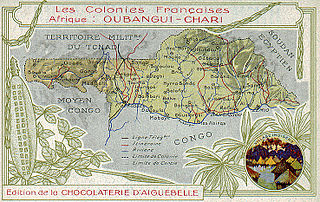
The Bangui Agreements are a 1997 negotiated peace accord in the Central African Republic (CAR). The accord was drawn up in Bangui to bring an end to the 1990s conflict between government and rebel forces. It was signed by the Patassé government, opposition parties and religious groups. The agreement envisaged several steps to sort out the views of various political factions, reorganize the defense establishment, and implement reforms in the country to improve its economy.

The African-led International Support Mission to the Central African Republic was an African Union peacekeeping mission to the Central African Republic. It was established on 5 December 2013 by United Nations Security Council resolution 2127 to stabilise the country as a result of the Central African Republic conflict under the Djotodia administration and following the 2013 Central African Republic coup d'état.

The United Nations Mission in the Central African Republic, more commonly known as MINURCA was a United Nations peacekeeping force in the Central African Republic. The 1350-troop mission was established by the United Nations Security Council Resolution 1159 in March 1998. It was replaced in 2000 after the Central African Republic conducted two peaceful elections, with the entirely civilian composed UN Peace-Building Support Office in the Central African Republic (BONUCA).


















